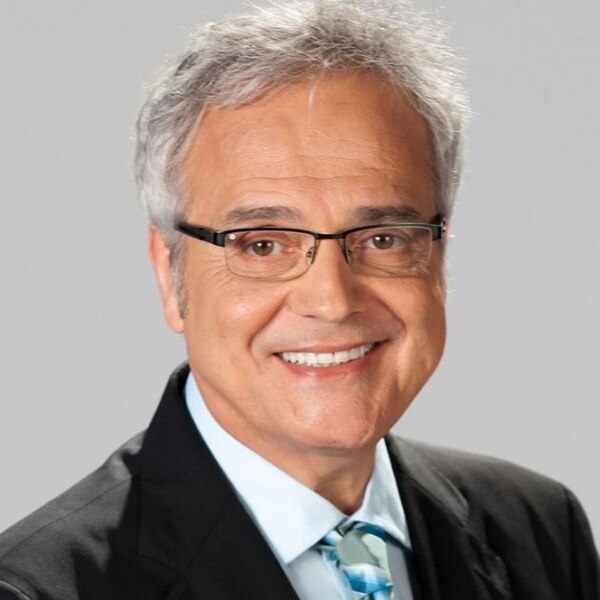- Face to face
- 19 de June de 2025
- No Comment
- 12 minutes read
Jaume Barberà: “Can We Truly Speak of an Educational System?”

FACE TO FACE WITH
Jaume Barberà i Ribas, journalist and writer
Jaume Barberà: “Can We Truly Speak of an Educational System?”

This Catalan television presenter, born in 1955, has worked tirelessly for more than thirty years at TV3, heading such outstanding programmes as Singulars, Els Matins and Bon Dia Catalunya. From 2014 to 2016, he also directed and hosted the programme Retrats.
As an author, he is particularly known for S’ha acabat el bròquil, which became the best-selling non-fiction title on Sant Jordi’s Day in 2013. In 2016 he published (In)satisfets, a critique of society’s dependence on sedative substances. Faced with such a restless mind and what we might call a a compulsion for activity, we are delighted to share a new ‘Face to Face’ interview with him for Educational Evidence.
Mr Barberà, how would you describe your professional development from your early days in journalism to becoming a recognised figure at TV3, using three adjectives
The first would be curiosity, which is both essential and fundamental in journalism. The second, perseverance—in work, and in life more broadly. And the third, commitment.
Commitment rather than mere involvement? Like the old saying: in a bacon and eggs breakfast, the hen is involved, but the pig is committed?
Exactly.
Speaking of commitment, how many different disciplines have you studied? And which teacher would you say most positively influenced that sense of commitment?
I studied teaching and sociology, English philology, computer science, and stock market analysis—all of which enriched me greatly. As for a teacher who truly moved me and shaped my attitude towards life, that would be José Maria Albadalejo.
For any particular reason?
Yes, he pushed me to want to start working when I was just 13. It was a tougher time back then.
Would you say that great, knowledgeable teachers are essential if we are to have skilled and capable students?
Absolutely! Absolutely! We need great teachers, and we are lacking them, if we want to nurture future citizens of real substance. I know this perfectly well because I myself have worked as both a primary school teacher and a university lecturer. Sadly, what I call the “left of nonsense”—a so-called progressive politics—has killed off both the teacher and the notion of meritocracy in education.
“Sadly, what I call the ‘left of nonsense’ has killed off both the teacher and the notion of meritocracy in education”
Have they lowered academic standards and turned our schools into amusement parks?
Precisely.
Many know you for masterful programmes such as Singulars. What criteria did you use when selecting your guests and topics?
Before answering that, it’s important to understand that Singulars was very much a product of its time. It emerged in a context marked by the crisis of capitalism and financial neoliberalism—issues that caused deep concern. That’s why we led audience ratings: we chose topics and guests who could explain what was happening in the most accessible and insightful way. One particularly brilliant moment was the interview with Alejandro Galeano. Eventually, the Convergència i Unió political party ordered the programme’s closure.
Should I take it we’re both thinking the same thing…?
[…]
Throughout your career, you have tackled social and political issues with notable depth. Do you think public media are fulfilling their informational role adequately today?
Not entirely. Public media need a dedicated quality department or commission that can act as a filter, supervising the standard of content in the face of high-volume news production.
“Public media need a dedicated quality department or commission that can act as a filter, supervising the standard of content in the face of high-volume news production”
But with the current pace of news cycles, isn’t that extremely difficult to implement?
Perhaps, but journalists must reflect carefully on what they write and how they write it before it is published. They must thoroughly review their work before it goes to external editing. Often, due to haste, news is poorly written.
In light of increasing misinformation and polarisation, what role should journalists and presenters play?
First and foremost, they must maintain distance. They must think very carefully about what they are going to say—remain faithful to the facts, and steer clear of ideology and personal opinion. And if they do choose to express an opinion—I’ve done it myself—it must be clearly presented within an editorial section.
Is it truly possible to write a news piece without expressing an opinion?
No. The moment you choose a topic and a guest, you’re already expressing one.
What do the words discipline, responsibility and perseverance mean to you professionally?
What a powerful trio! Without those, you can’t go far in life. More than that—journalists cannot do their work properly without them. We must be acutely aware of the social responsibility we carry.
Why do you say that?
Because a journalist has the power to ruin a person’s life. We must be extremely careful when editing a story, and without discipline, responsibility and perseverance, that level of care is impossible.
You have often said you are more interested in listening than in speaking. How can this attitude be cultivated in such a fast-paced media world?
I believe it was Seneca who said: “The one who leads a conversation is not the one who speaks, but the one who listens”. And he was absolutely right. If you want to learn, you must invite people who know more than you do and listen to them. Once you’ve conducted an interview and truly listened, you are no longer the same person. The guest has transformed your perspective.
“To learn, you must invite guests who know more than you and listen to them. After such an interview, you are no longer the same person”
So, “Speaking plants, listening harvests.
Exactly.
In terms of your professional success, do you see a connection between the effort you made as a student and your current standing as a journalist?
Yes, but not only as a student—more broadly, as a person. I have always committed myself to anything that could make us better human beings, driven by effort, curiosity and discipline. I’ve always worked hard in that direction.
Was there a particular interview or moment in your career that was especially significant or transformative for you?
That’s a very difficult question. I’ve done so many interviews that what sticks with me is more the emotion of the moment than the reason. Perhaps those linked to the Gulf War or the Indonesian tsunami affected me deeply. And in terms of individuals, I distinctly remember interviewing the Claretian priest Pere Casaldàliga. I went to speak to him as an atheist and returned as an agnostic.
I think I understand you. The same thing happened to me when I interviewed the writer Romà Comamala. Perhaps spirituality forms part of the deepest fabric of humanity.
Perhaps.
Returning to journalism—how would you say Catalan public television has changed since you first joined it? And more importantly, how should it improve going forward?
I would say that our public broadcaster, TV3, continues to be very good. With public funding, we created a TV network that is now recognised internationally. However, we do need quality control to prevent haste, immediacy, and poor editing from damaging what we produce.
With such speed in news reporting, do you think there’s a widespread lack of scientific and humanistic culture in society? Or has our educational system perhaps been diluting the transmission of such knowledge?
Let me answer your question with a rhetorical one: do we really have an educational system?
Well, I don’t know what to say…
Then let me say this: what is happening in education in this country is a disgrace. I myself took part in the pedagogical renewal movements of the 1980s, and I could never have imagined what they would eventually lead to. Students today cannot read—and if they can’t read, they can’t learn from previous texts. A country without a solid educational system is nothing, and it cannot aspire to anything.
“I took part in the pedagogical renewal movements of the 1980s, and could never have imagined what they would ultimately cause”
And here we come to the many loud voices roaming freely across social media, without knowledge or training.
People who make a great deal of noise without being experts.
Exactly. So, what do you make of the fact that so many people share opinions on social media without any real thought or foundation?
When I hear the word influencer, I immediately switch off the radio or television. I’m not very active on social media anymore because of the overwhelming noise. We must be very careful, and verify carefully the information we receive. I always consult established, professional, and credible outlets—and ignore those who opine without a sound basis.
Could you share any details of a forthcoming professional or personal project?
I’m currently working on a new book, but I’m afraid I can’t speak about it just yet.
Setting that aside, imagine you were given a magic lamp. What personal wish would you make?
Quite simply, to continue sharing life with my family, in good health and with love.
Finally, what advice would you give to young journalists who wish to do meaningful, high-quality work in today’s media?
It’s very simple. Whatever they do, they should make sure their story answers the questions: when did it happen, what happened, how did it happen, and why did it happen? If they can answer those, they’ve written a good piece. If not, they’re not doing their job properly.
Jaume Barberà, thank you for sharing this interview.
I hope I’ve changed your outlook on life.
You have.
Source: educational EVIDENCE
Rights: Creative Commons


